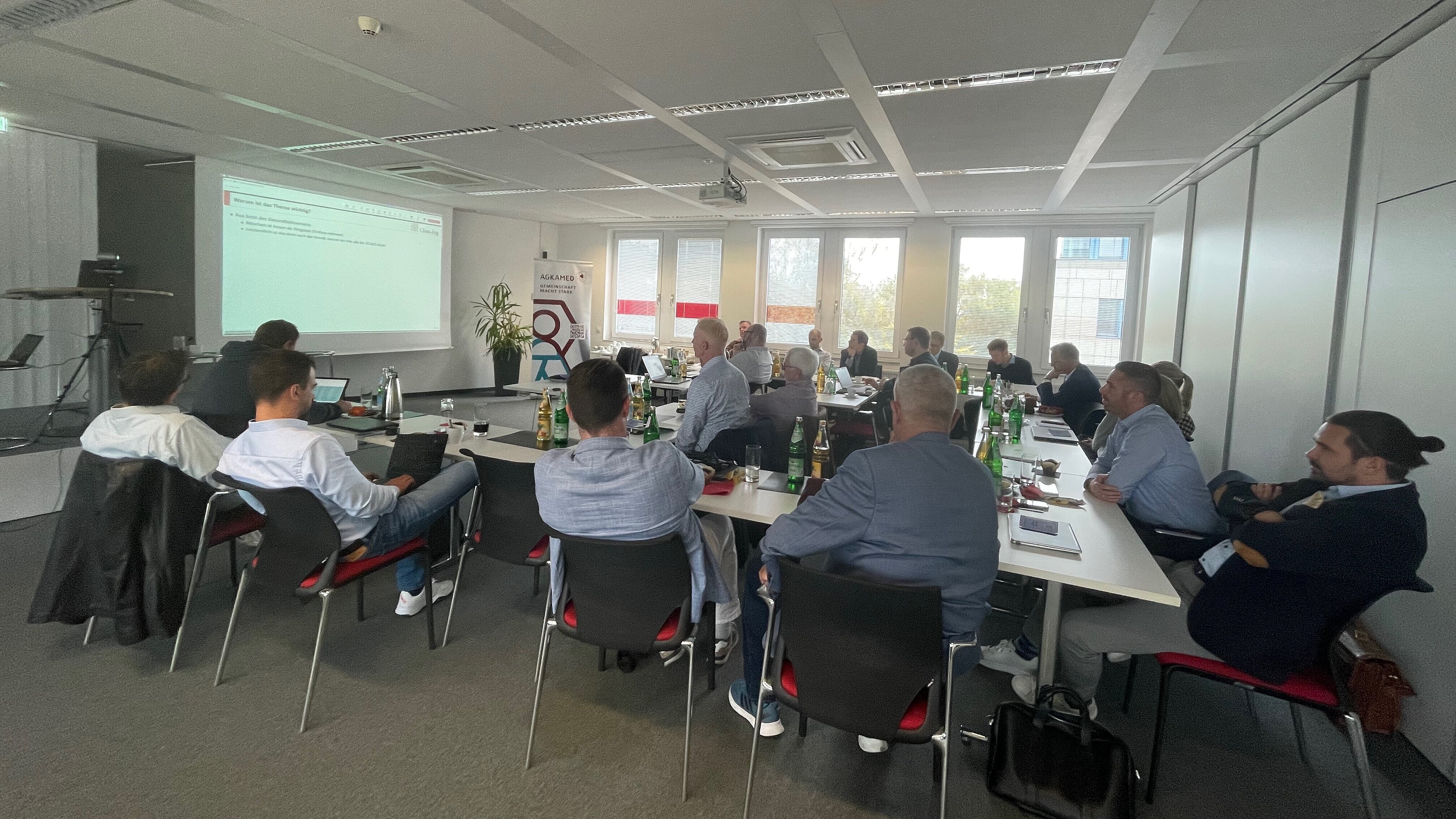Question: Dr. Heinemann, you lead ECLASS Expert Group 34, "Medical Device." What makes this role special for you?
Dr. Oliver Heinemann: The work carried out in the expert groups is a key function of ECLASS that sets it apart from other classification systems. It enables the incorporation of in-depth industry knowledge directly into the standard's further development. This is especially important in the field of medical devices, where there are specific requirements that can only be identified and implemented by experts with practical experience.
Question: Why is the involvement of industry experts so important for ECLASS?
Dr. Oliver Heinemann: ECLASS covers a wide range of industries, so no single central team can handle it alone. That's why responsibility for content development has been handed over to expert groups. This ensures that important adjustments are identified and incorporated early on. These adjustments lead to continuous improvement of the standard, making it particularly valuable for users.
Question: How has the work of Expert Group 34 developed since its inception?
Dr. Oliver Heinemann: Our journey began in 2005 with mapping low-value goods needed daily in the healthcare sector. This was followed by capital goods and functional plant areas. Today, we have achieved a comprehensive map. Major structural expansions are no longer necessary, which is advantageous because innovations can now be integrated flexibly and without major modifications.
Question: What topics are currently the focus of your work?
Dr. Oliver Heinemann: Currently, Expert Group 34 is addressing peripheral issues, such as pre- and post-care for patients, as well as innovations that create new demands for classification. Additionally, we are working on cross-industry adjustments, standardizations, and consolidations that require central coordination and approval.
Question: What motivates you to volunteer for ECLASS?
Dr. Oliver Heinemann: It feels good to be part of a system that provides real value to countless users. The ECLASS Standard is now used by most German inpatient facilities. It helps better structure processes, analyze purchasing volumes, and quickly identify alternative products in the event of supply bottlenecks—a crucial point in an environment driven by patient flows rather than system processes.
Question: What are your hopes for the future of working in the ECLASS Expert Groups?
Dr. Oliver Heinemann: I hope more experts in the field recognize its value and get involved. Only through continuous professional participation can the ECLASS Standard remain relevant and viable.

![[Translate to Englisch:] Roboterarm](/fileadmin/_processed_/6/1/csm_Nataliya_Hora_shutterstock_368354981_1d560f61a9.jpg)
